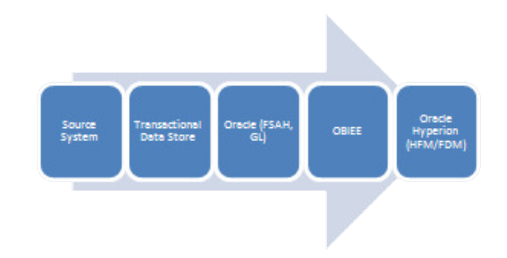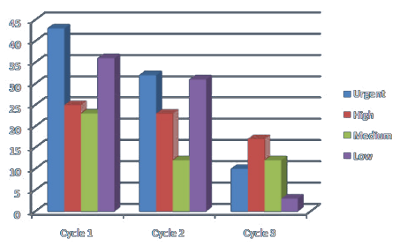Overview
Rand merchant Bank, a leading investment bank in Johannesburg, South Africa has partnered with Software Testing Solutions for the provision of software quality assurance and testing services across the RMB trading systems platform. The services of STS were extended to all applications including proprietary and custom developed software across front, middle and back office to ensure the delivery of quality solutions, effective risk management and reduction of development implementation costs.
Financial Transformation
Rand Merchant Bank embarked on a large-scale initiative to transform financial processing and reporting across all trading desks to as to optimise the quality of financial reporting and compliancy to the South African Reserve Bank, enable consistency and, decrease the management overhead and complexity of multiple financial reporting systems. As a result Rand Merchant Bank acquired the Oracle E-Business Suite with special interest pertaining to the Oracle General Ledger to support financial transformation within the bank.
Business Challenge
Transforming the financial processing and reporting function aross the trading platform within the bank presented many challenges. These challenges were associated with the level of integration, customisation of source systems, complex business requirements and centralised data modelling. These challenges were further compounded by the demand for a high quality implementation to ensure system reliability and accuracy of data to avoid penalties from being issued by the South African Reserve Bank.
How STS Helped
The project was deemed as a high-profile, high risk and monitored very closely by key stakeholders. The STS team that was deployed consistsed of highly skilled and experienced resources. The mission objective was to ensure the delivery of a quality solution by introducing an effective testing structure, building the principle of quality into the systems development lifecycle and resolving system defects early in the development lifecycle.
STS Performed an SQA Healthcheck and made these observations
- No strucutred test framework present to support Quality Assurance.
- No dedicated test team on site.
- No testing standards and best practicies.
- No test tools were being utilised.
- No effective test reporting to enable decision makeing.
- No independent verification & quality governance model
STS defined a Test Environment Management process
- Test schedule-per environment
- The Test team took full ownership of test environment with sceduled periodic releases.
- Configuration management was implmeneted so as to control changes and cross impact.
STS Optimised the Test Tooling strategy
- HP Quality Centre was introduced as the test management tool
- HP Quality Centre was used to manage test requirements and track test coverage.
- Requirements were weighted according to business risk so as to prioritise testing and maximise on testing timelines.
- HP Quality Centre was used to design and warehouse test cases.
- HP Quality Centre was used to control the test execution and store results.
- HP Quality Centre was used for defect management (loggin, escalation & reporting).
- HP Quqlity Centre was used to enable the test reporting framework.
- HP Quality Centre was utilised by all role players within the project
STS documented the testing process
- Test plans
- Test dashboards and MIS reporting
- Defect management reports.
- QA sign-off reports
- Post Implementation repots
STS implemented supporting test processes with integration into an agile development methodology
- Testing standards and best practies
- Requirements management process
- Test Analysis & Design process
- Defect management process
- Test Data management process
- Test environment management strategy
- Release management process
- Risk and issue management process
Platform Integrity & Reduced Implementation Risk
The defined test scope was extended to all applications within the context of the implementation to assure the integrity of the platform. A risk based model was implemented to nesure that all requirments were weighted in terms of business risk and subsequently all high business risk requirements received 100% test coverage
Th test scope was based primarily on the following high risk areas:
- Creating all possible combination of business events that would be triggered in order to test and confim the Oracle rulse that were created.
- After validating events during the Create Accounting process, the team validated the resulting events in OBIEE (Profit and Loss repott).
- Validating the integrity of data from source systems into the Oracle platform and subsequent ouput financial reports.
- Verifying end-to-end functionality after all technical enhancements and configuration
Test cases were executed over three test cycles encompassing functional, system integration and regression testing. Defects were logged and excalated for resolution and retested in subsequent test cycles. The resulting trends were substantial decrease in high severity defects, increased system stability, higher levels of quality and reduced implementation risk.

End to End Test Coverage
Test cases were executed over three test cycles encompassing functional, system integration and regression testing. Defects were logged and excalated for resolution and retested in subsequent test cycles. The resulting trends were substantial decrease in high severity defects, increased system stability, higher levels of quality and reduced implementation risk.

Defect Summary Graph grouped by Severity
The implementation was deemed a success and delivered:
- Improved reporting to the South African Reserve Bank (SARB)
- Customised reports with ability to quickly and efficiently generate reports for internal and external business partners
- A robust financial management platform to suit the requirements of a top end trading business
- A reusable Testing platform to support future maintenance of growth.
High Quality. Delivered.
The test scope and effort of testing was fully understood. A Test Plan was created. Test requirements and changes to requiremetns during the course of the project were managed effectively. Test environments were controlled so as to support and increase the quality of the test effort. Test cases were created and test coverage was tracked carefully to ensure 100% coverage of business critical functionality and integration. Test cycles were planned and well executed with efficient storage of results.
Testing incorporated large scale integration and regression testing to vzlidate Oracle integration onto line of business and platform inegrity. Test metrics were incorporated into management dashboards to measure system quality, risk and progress to enable decision making. Defects were logged, tracked, escalated for resolution, retested and accepted as working with no impact to the integrity of the system. Sign-Off and Post Implementation reports were consolodated.
About software Testing Solutions
Software Testing Solutions (Pty) Ltd (STS) is a South-African Organization (BEE AAA+), who operates within Africa and the UK. STS is a market leader in terms of Software Quality Assurance and has successfully engatged with and completed many projects within the South African Banking & Financial Services industry.
These projects range from the testing and implementation of lient centric retail banking systems, mainframe solutions and large-scale trading application and implementation of largescale ERP systems. STS has successfully worked with a variety of technologies, methodologies and takes pride in delivering innovative and cutting edge solutions to its clients.